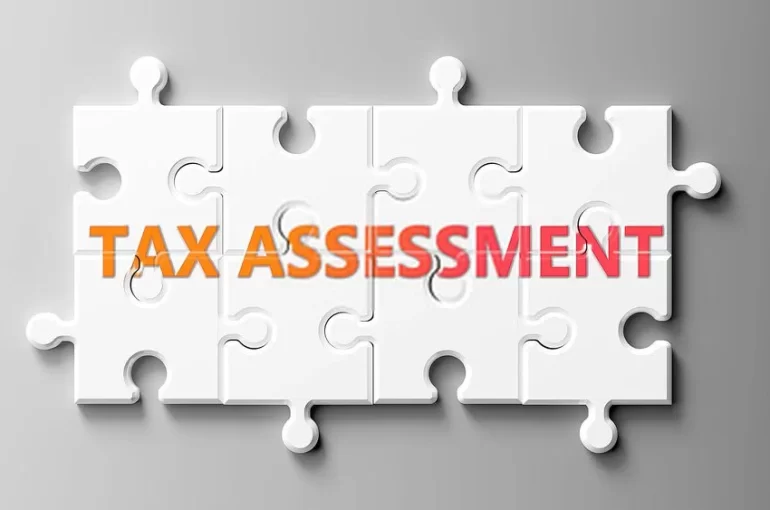SUPREME COURT ON TAX ASSESSMENT TIME LIMITS

On September 11, 2025, the Supreme Court of India delivered a significant ruling in Ms. Shiv Steels v. State of Assam & Others (Civil Appeal No. 4440 of 2014). The Judgment, authored by Justices J.B. Pardiwala and Sandeep Mehta, decisively addressed the interplay between different time limitation provisions under the Assam General Sales Tax Act, 1993, particularly Sections 19 and 21.
This Judgement provides important guidance for both taxpayers and revenue authorities on the permissible boundaries for reassessment where original assessments have lapsed due to limitation.
BACKGROUND OF THE CASE
The dispute arose from reassessment orders issued for Ms. Shiv Steels concerning the assessment years 2003-04, 2004-05, and 2005-06 under the Assam General Sales Tax Act, 1993. Initially, the authorities deemed these assessments time-barred pursuant to Section 19, only to later invoke Section 21, after securing sanction from the Commissioner, to reopen and reassess within a supposed fresh period of limitation. Dissatisfied with the renewed action, the Appellant challenged the proceedings before the Gauhati High Court, which ruled in favor of the Revenue and permitted the new assessments.
KEY LEGAL ISSUES
The Hon’ble Supreme Court, in this case, was called upon to address the following core issues:
- Whether after declaring original assessments “time-barred” under Section 19, authorities may reopen assessment by invoking Section 21 with the Commissioner’s sanction;
- The scope and correct interpretation of Sections 19 and 21 concerning limitations for assessment and reassessment.;
- The impact of quashed assessments on the application of further limitation periods and whether Section 21 provides a universal ‘second window’ for the Revenue once Section 19’s timeline expires.
COURT’S ANALYSIS AND FINDING
- On Statutory Interpretation: The Supreme Court rigorously examined the statutory scheme, explaining that Section 19 lays down a clear period within which assessments and reassessments must be completed. Section 21, although allowing assessment within four years post-limitation if the Commissioner’s sanction is obtained, operates only “where no assessment has been made” within the original limits and not where assessments were made and then set aside as time-barred.
- On Revenue’s ‘Second Opportunity Argument: The Revenue argued that upon the quashing of assessments as time-barred, the law allowed authorities to start afresh under Section 21 by simply obtaining proper sanction. Rejecting this, the Court held that once an assessment is declared void for want of limitation, there can be no legal justification to perform another assessment on the same facts merely by invoking a different provision. Section 21 is meant as an exception only in genuine cases of no assessment, not as a corrective tool for jurisdictional lapses.
- Emphasis on Strict Construction: Quoting established principles governing fiscal statutes, the Court stressed that tax impositions must strictly conform to the letter of the law. There is little room for inference or procedural improvisation; if the explicit statutory prerequisites are not met, assessments cannot stand.
DIRECTIONS OF THE COURT
- The Supreme Court allowed the appeals, set aside the High Court’s order and declared that the reassessment attempts for the relevant years were not permissible.
- The Judgment firmly reaffirmed that tax authorities may not bypass limitation simply through Commissioner’s sanction if the legal window had already closed due to an earlier procedural lapse.
CONCLUSION
This Judgment brings much-needed clarity to the operation of limitation periods in tax matters under state sales tax statutes. By unequivocally excluding the possibility of successive assessments once prior actions have lapsed or been declared invalid, the Court ensures that both the government and taxpayers operate within precisely defined legal boundaries. The ruling strengthens legal certainty and prevents interminable exposure to reassessment, upholding the importance of statutory time limits in fiscal legislation.
Soumen Dash
(Legal Associate)
The Indian Lawyer & Allied Services
Please log onto our YouTube channel, The Indian Lawyer Legal Tips, to learn about various aspects of the law. Our latest Video, titled MSMEs in India| Delayed Payments|Advocate Sushila Ram Varma | can be viewed at the link below
https://youtu.be/me1xbu40OrM?si=X4RYbvxnLmfB_cQj





































Leave a Reply